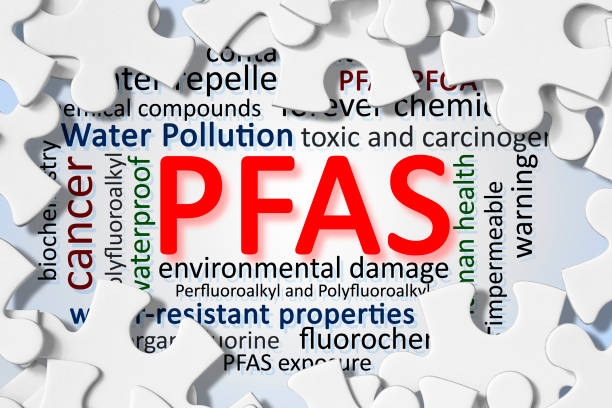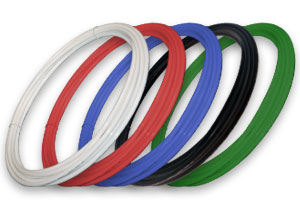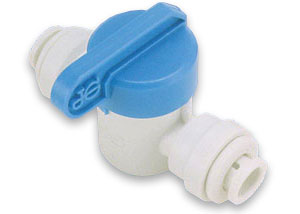Water filtration experts, scientists, and health organizations have been studying PFAS and their possible effects on drinking water and the environment.
What are PFAS?
PFAS (per- and poly-fluoroalkyl substances) are synthetic chemicals resistant to heat, water, and oil used in various industrial and consumer products since the 1940s, such as:
- Carpeting
- Stain-resistant fabric
- Upholstery
- Non-stick coatings on cookware
- Floor wax
- Electronics
- Paints
- Metal plating
- Fire-fighting foams
- Waterproof clothing
- Food packaging
- Personal care products
PFAS are still considered new contaminants. Since they are not easy to remove, even trace levels are enough to be problematic. Water filtration systems to significantly reduce PFAS are expensive to purchase and maintain.
Water Filtration Experts Explained Why PFAS Can Be Harmful
Industrial sources, such as manufacturing facilities and wastewater treatment plants, can also release PFAS into the air, soil, and water, leading to extensive contamination. PFAS contamination can occur from contact with various applications, such as making and eating food from a non-stick pan. They leach out of products and into your skin and body.
PFAS are labeled “forever” chemicals because they do not naturally break down and can remain in the environment for up to thousands of years. These substances can seep into the environment, contaminating water sources like grass and waterways.
However, concerns over PFAS contact have been a hot topic among national and environmental agencies due to their potentially damaging effects on human health and the environment. Due to their composition and longevity, PFAS have been associated with many health problems, such as cancer, because they put oxidative stress on the body.
Medical studies also indicate that PFAS exposure can lead to liver damage, kidney disease, and developmental issues in children.
The Environmental Protection Agency (EPA) recently passed limits on appropriate PFAS levels in public water supplies for six types of PFAS. Although there are over 12,000 types of these chemicals, regulating six of them probably will not be very effective.
A safe solution to reduce PFAS in your drinking water is installing a whole house carbon water filter or reverse osmosis home system. To be clear, no water filtration company or supplier can claim that a filter will 100% remove all PFAS. Be sure to buy your filter and system from a reputable water filtration supplier.
Look for filters certified by independent testing organizations to reduce PFAS. Speak with a credible water filtration supplier to choose the best filter and system for PFAS reduction.
Water Filtration Experts and Scientists Continue Research
There is no sure way to prove that PFAS are the primary source of any health issue a person is experiencing. For example, returned military members are concerned about being exposed to PFAS due to the use of AFFF (Aqueous film-forming foam) to fight fuel fires.
Scientific research and clinical studies are continuous and exhaustive. If you have any questions about PFAS or are concerned they are in your drinking water, contact a water filtration supplier. Whether or not you are concerned about PFAS, installing a water filtration system in your home or business is the best way to reduce contaminants that can significantly lead to health issues.
Contact our team of water filtration experts with any questions or concerns about PFAS or to learn how to buy the right water filtration system.


















